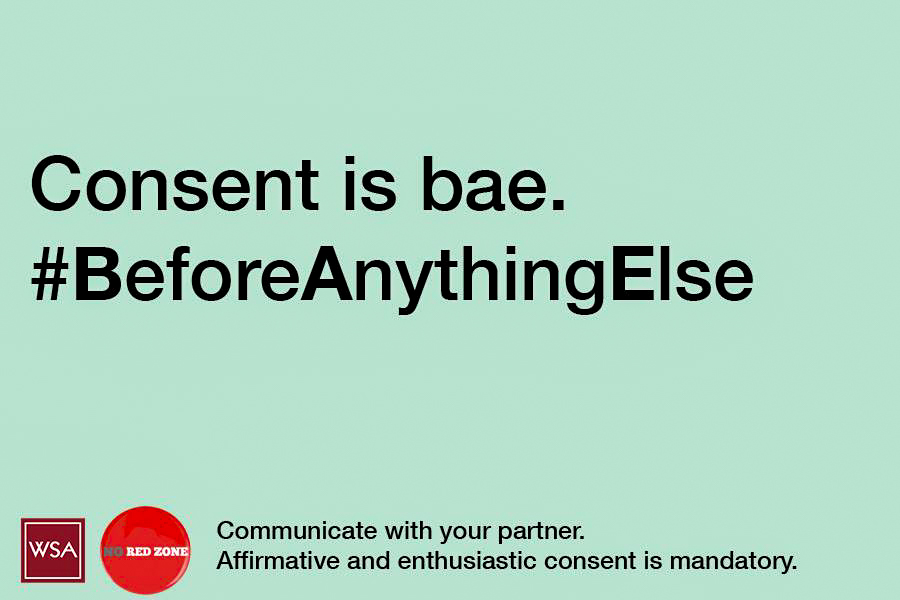
Content Warning: Sexual violence
The fourth annual Project No Red Zone (PNRZ) event began on Monday, Sept. 2 and will run for the first six weeks of the semester. PNRZ, an initiative run by Wesleyan Student Assembly (WSA) President Justin Ratkovic ’20 and WSA Vice President Ayana Dudley ’20, aims to combat the “Red Zone,” the first six weeks of school in which sexual assaults are most likely to happen.
“I think there’s a lot that goes into the reason why the first six weeks are the Red Zone,” Dudley said. “One thing I hope people take away is what they can do to foster a safe first six weeks and take personal responsibility.”
PNRZ was first launched in 2016 by then-WSA President Rebecca Hutman ’17. In its first iteration, PNRZ aimed to educate underclassmen about the resources available on campus because first and second years are significantly more likely to be sexually assaulted during the Red Zone.
Ratkovic and Dudley hope to continue focusing on underclassmen and increasing awareness about resources connected to sexual assault at the University. They believe that it’s important to ensure that the necessary support is available for first and second years.
“We need to foster this community of care right when they get onto campus, making sure they know all of the support networks that are here,” Ratkovic said. “That way they can really feel involved in the community.”
In addition to focusing on the education of underclassmen, Ratkovic and Dudley are also intent on involving and educating upperclassmen as well.
“Another thing that we want to focus on is outreach,” Dudley said. “Project No Red Zone is always new to first years and there seems to have been a big emphasis on getting this out to first years, but I think it is also very valuable to re-educate all other years as well.”
To educate older students, Ratkovic and Dudley want to reach out to student organizations in order to spread the message of PNRZ. They plan to bring back a public inter-Greek forum held during last year’s PNRZ, where members of Greek organizations at the University learned about bystander intervention and sexual assault prevention.
“I think it was relatively well attended, where we got people from different organizations to come together and talk relatively frankly about how to deal with it,” Ratkovic said. “The nice thing about that was that people kind of recognized that this is an area their organizations could, if not directly, but indirectly be causing issues in.”
Dudley and Ratkovic hope that student groups, after receiving training under PNRZ, will continue conversations among themselves about consent and preventing sexual assault.
“I think it would be good to talk to different sports teams and Greek life too…people who are spending their time with each other a lot,” Dudley said. “If we can get good messages out to everyone, then hopefully those messages are being spoken about in these groups too.”
Looking forward, Ratkovic and Dudley hope to extend PNRZ programming beyond the first six weeks of school in order to continue the dialogue about sexual assault on campus and ensure students stay informed year-round.
“Though the first six weeks are what the Red Zone is, I think it should be a year-long conversation,” Dudley said. “I don’t think just because we’re out of the six weeks means all right, we’re in the clear.”
Jocelyn Maeyama can be reached at jmaeyama@wesleyan.edu.
Jiyu Shin can be reached at jshin01@wesleyan.edu.


Leave a Reply